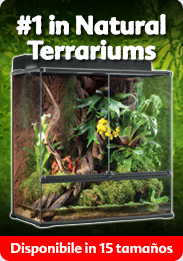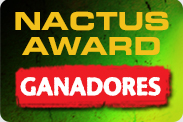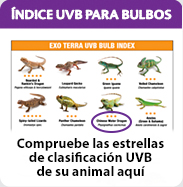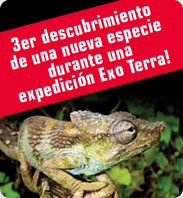Symposium Germany 2008
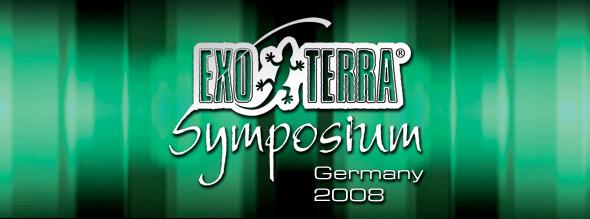
Simposio de Exo Terra en el Tierpark Bochum
Nada menos que el futuro de la industria de los reptiles en Europa está en juego. La práctica de mantener los reptiles y anfibios en terrarios aún no es ampliamente aceptado por el público, y las tendencias políticas junto con la creciente protesta por parte de las organizaciones proteccionistas son aún mayores. ¿Cómo puede el sector comercial, dedicado a la importación, crianza y venta de reptiles y anfibios, mantenerse en el futuro? ¿Sería posible compensar las restricciones sobre las importaciones, temido por algunos, mediante la crianza en cautiverio? ¿Qué se podría hacer para mejorar la imagen de mantener animales en terrarios?
Contra esta situación, los importadores nacionales e internacionales, los criadores, los mayoristas, los dueños de tiendas de mascotas y los representantes de asociaciones, se reunieron en la Escuela para Animales del Zoológico de Bochum (Tierpark Bochum) en Alemania, el 16 y 17 de febrero, 2008 para evaluar la situación y discutir las posibles soluciones.
El evento fue presentado por Hagen Deutschland, la compañía que representa a Exo Terra en el mercado alemán. Emmanuel Van Heygen, Gerente Internacional de Marca, abrió el simposio. Richard Wronka, el Director de Mercadeo para Hagen Deutschland y Roland Zobel, Director de Productos para Terrarios, moderó el acontecimiento.
Proper opposition to the imminent ban on imports
Lorenz Haut, General Manager of the BNA (Bundesverband für fachgerechten Natur- und Artenschutz e.V., German Federal Association for Professional Conservation and Protection of Species) demanded that the keeping of wild animals under human care should always be allowed. He stated however that this notion is increasingly opposed by animal welfare organisations and politicians.
He reminded the audience of the import ban on all wild birds, imposed by the European Union under the pretext of the bird flu -- and of the extreme positions held by animal welfare organisations that even call for the closing down of zoos by simply letting the animals living there die out. Finally, he criticised the ban on keeping potentially dangerous animals by private individuals in Hesse, a federal state in Germany.
On the other hand, he stated that standards must be met to ensure that animal welfare is guaranteed along with the import of, trade with and keeping of, wild animals or animals for breeding. Here, he quoted the “Minimum Requirements for the Keeping of Reptiles” and the “Guidelines for Animal Fairs under Animal Welfare Aspects”, both issued by the Federal Ministry of Consumer Protection, Food and Agriculture.
Regarding the import of animals captured in the wild, Mr Haut stated that presently the European Union has no intention to completely ban the import of reptiles. However, he continued, a European Animal Welfare Law is in the planning stage and here is were it is necessary that the affected importers, breeders and trader come forward as one united group.
The following regulation regarding the import of animals captured in the wild is proposed by the BNA:
- Controlled, sustainable collection of reptiles in the countries of origin.
- Import only by certified wholesalers
- No mass imports
- Encouragement of breeding in captivity in Germany
- Release of rare or difficult to keep species only to competent pet owners
This gave rise to discussions, especially when the additional proposal was made that pet shop owners should only sell animals bred in captivity. But there were also voices of support, since animals bred in captivity are usually not stressed, eat without problem, and are altogether easier to keep.
Animals captured in the wild and animals bred in captivity are no contradiction
Yet breeding in captivity has its problems too. There are two reasons: From an economical perspective, there are no large breeders in Germany and only comparatively few commercial enterprises. Private breeders destroy the market by offering animals at low prices, making it difficult for commercial breeders to achieve reasonable prices. On the other, there is the complaint of the wholesalers that breeders are rarely prepared to offer significant discounts to the trade. According to Thorsten Holtmann of the Tropenparadies in Oberhausen, this leads to a situation where traders buying in these animals can no longer compete with animal fairs and internet platforms. So it is here where the proper functioning of the market is not yet established. The other reason is of biological nature.
The chameleon specialist, Wolfgang Schmidt, explained that breeding in captivity is only successful over two to three generations and then it fails. For this reason, it is necessary to constantly introduce animals captured in the wild to regularly re-start breeding in captivity. In summary, it is not possible to simply replace animals captured in the wild by animals bred in captivity.
An import ban would harm the countries of origin too
As an additional argument in support of the import of wild animals, the concept of foreign aid was brought into play, since in some countries the revenues derived from the export of animals have grown to a significant size. And, after all, it is expected of these countries that they invest in the protection of species.
“Costa Rica will stop protecting biotopes, if the business that comes out of that stops,” said Sylvia Macina of the DGHT (Deutsche Gesellschaft für Herpetologie und Terrarienkunde e.V., German Society of Herpetology and Terrarium Science).
Furthermore, she continued, animals captured in the wild are needed to regularly introduce new genetic material to animals bred in captivity. Today, among some species of snakes there are only those animals commercially available that show completely unnatural fashion colours, so-called ‘candy animals’ - natural colouring is in short supply!
Klaus Oechsner, President of the ZZF (Zentralverband Zoologischer Fachbetriebe e.V., German Confederation of Zoological Specialised Enterprises), in his speech, raised the issue of insufficient collaboration between the associations in face of the enormous public relations and political tasks.
He shared the view that controlled collections from natural habitats must continue in order to maintain the quality of the breeding lines. He believed that the import conditions currently discussed at EU level are over-the-top, especially the quarantine period of six months in the country of origin. He, too, is concerned about the growing global influence of animal rights organisations, some of which hold extreme, fundamentalist views. Any form of keeping animals, including the keeping of domestic animals, is flatly rejected and attacked by some of these organisations. He held the view that only the unity of all players in the domestic animals industry, including breeders, could help to tackle such organisations. Top priority should be given to sustainable efforts to further improve the protection of domestic animals, ideally in close cooperation with the animal welfare organisations that have joined together in the Alliance Animal Welfare (Bündnis Tierschutz ), such as the German Animal Welfare Federation (Deutscher Tierschutzbund).
Radical animal welfare organisations are too influential
The DGHT Chairman Ingo Pauler targeted as his principal enemies the “animal rights fanatics” that are fundamentally opposed to animal keeping. “If they get their way, there will not only be the threat of a total import ban, but, sooner or later, breeding will be prohibited as well.” However, he continued, this would be an attack on the internationally indisputable call for biodiversity and sustainability. Poor countries must be given the opportunity to earn money with the export of animals captured in the wild in order to acquire the means needed to protect biodiversity and species. He agreed that certified importers would be a right way to go. In addition, he stood up for the transfer of breeding know-how to third world countries to boost the economic use of natural resources.
Chris Newman, chairman of an English animal keeper organisation, told his German colleagues that they were facing a European problem. He made it especially clear that confrontation with animal welfare organisations, which are considerably more radical in England than in Germany, is a fight with unequal weapons.
The five largest groups receive donations totalling almost 300 million Euros in England. Trade and breeders cannot compete with this, even if they were supported by the industry. Consequently, Newman’s advice was to fight back with well-researched arguments via public relations and lobbying. He initiated, for example, an investigation to find out in how many of the many thousand animal accidents in England involved reptiles. The answer – only 18 incidents were reptile-related, with the remainder attributed to dogs, horses, cats, etc.
Despite the difficult situation of the industry, there was no agreement regarding the cooperation between the various organisations. While Lorenz Haut of BNA believed that a dialogue should be sought with all groups, even if completely different opinions were held, Ingo Pauler favoured an uncompromising approach. “Don’t always talk to all of them, don’t retreat a single inch!”
Among those participating in the plenary session, the wish for agreement could be felt quite strongly, and it was heard that following the meeting arrangements were eventually made to get together and discuss the burning issues.
What should be done?
The future of keeping animals in terrariums is uncertain. For the future to be bright, three things have to be ensured: firstly, every aspect of importing, breeding and trading with animals is kept clean. Why not go the way of certification of import enterprises and breeder, as other critical industries have done before? Volker Ennenbach of the wholesaler, Tropenparadies, calls specifically for licensing of all importers of living animals. If this does not work across the European Union, he stands up for a seal of approval that guarantees minimum standards. He even takes it one step further and leads us to the second point: the advanced technologies available today for equipping terrariums have to be utilized universally. Ennenbach posed the question of whether or not it would be better in many cases to have pet shops upgrade their terrarium equipment. An alternative could be to do without trading of certain species. Finally and thirdly, it is necessary to communicate the efforts and achievements of a broadly designed quality offensive to politics and the public. And this should preferably be done with one voice!




